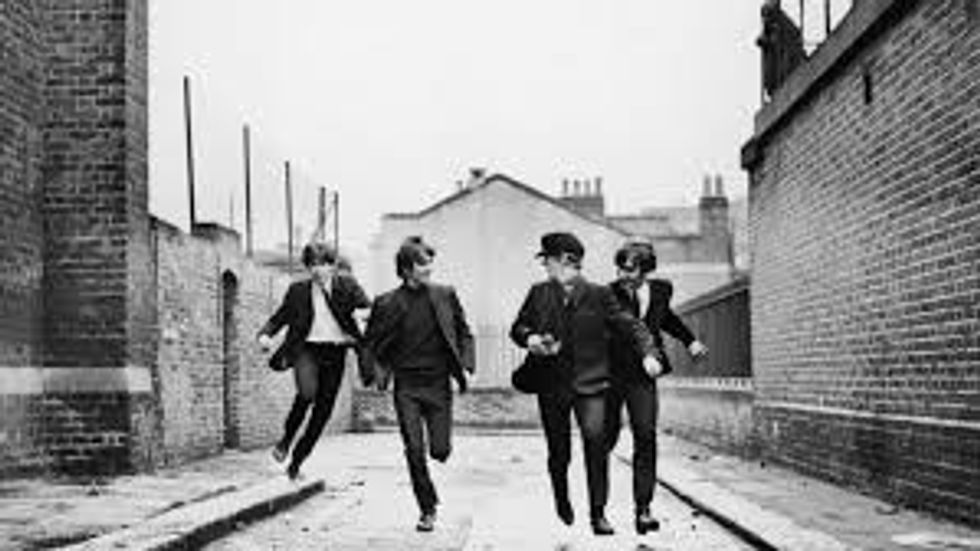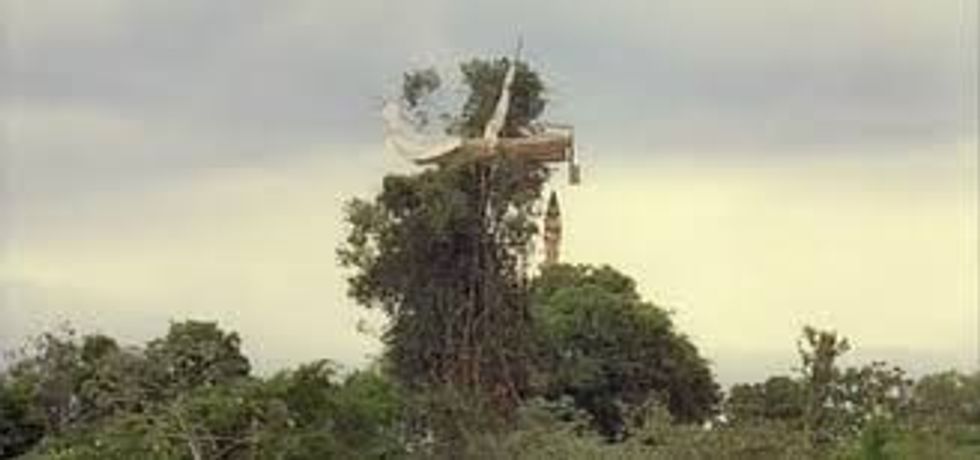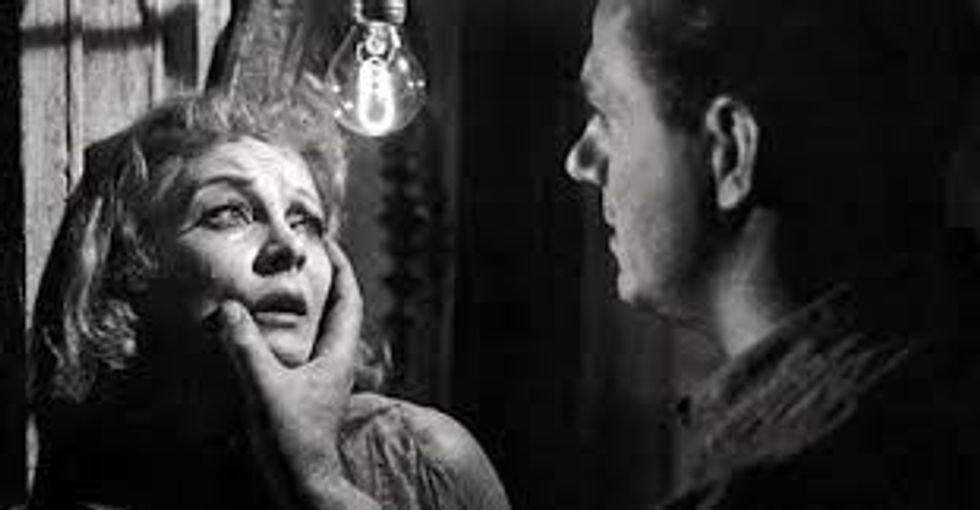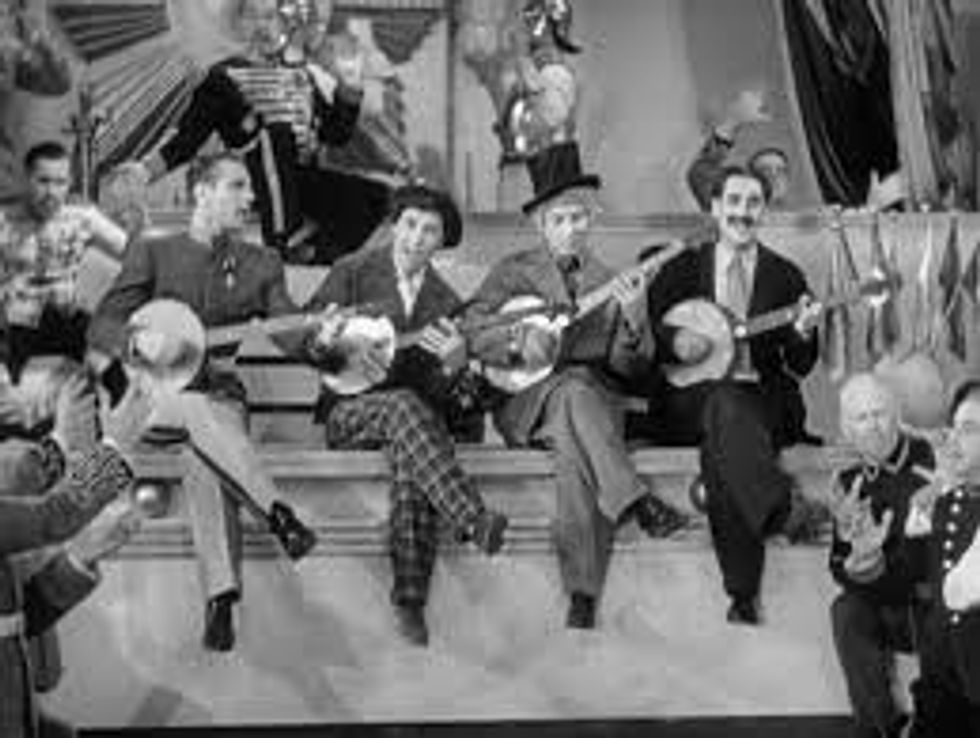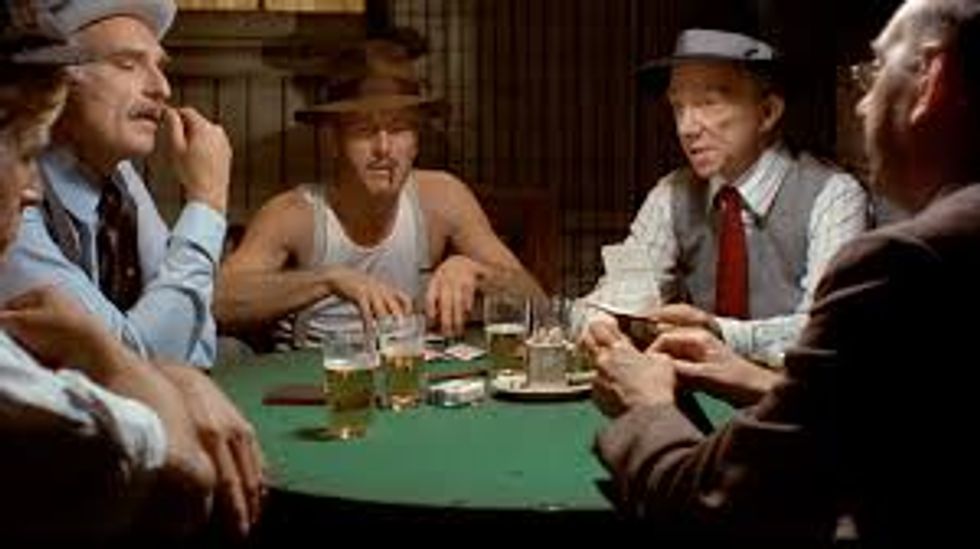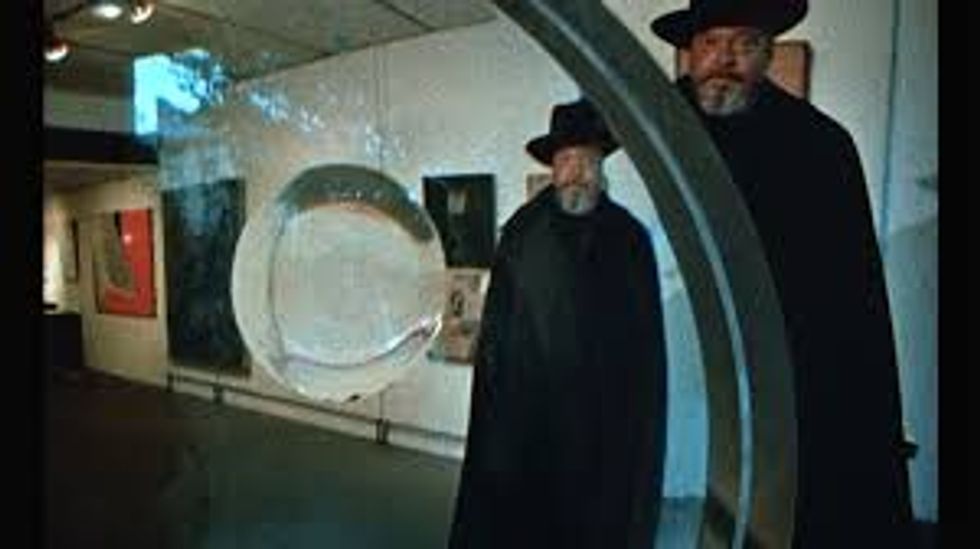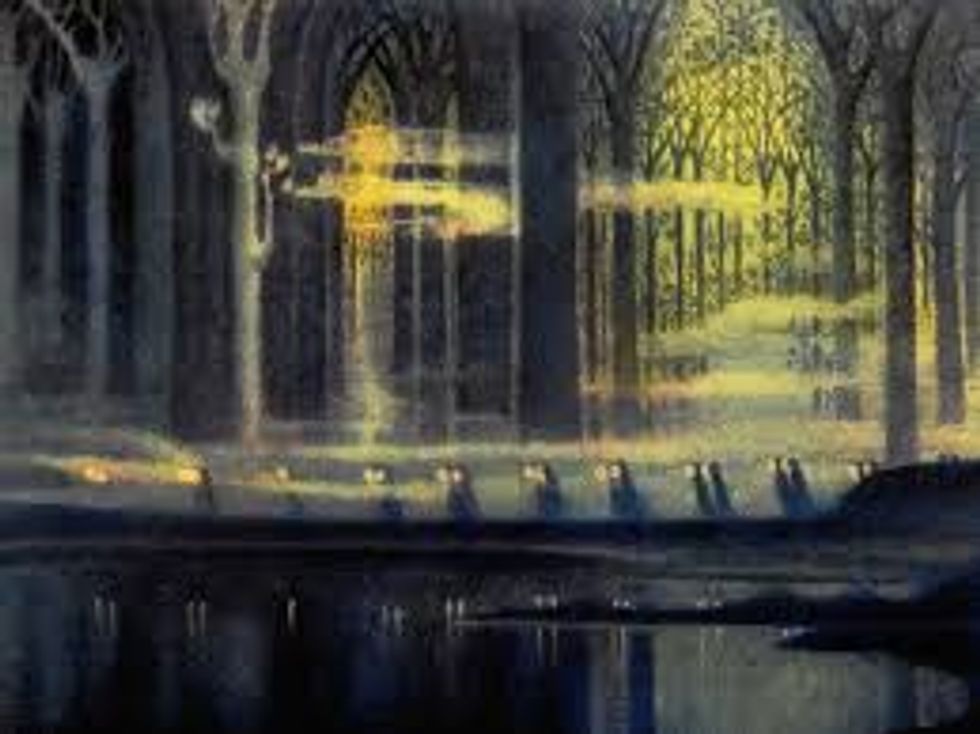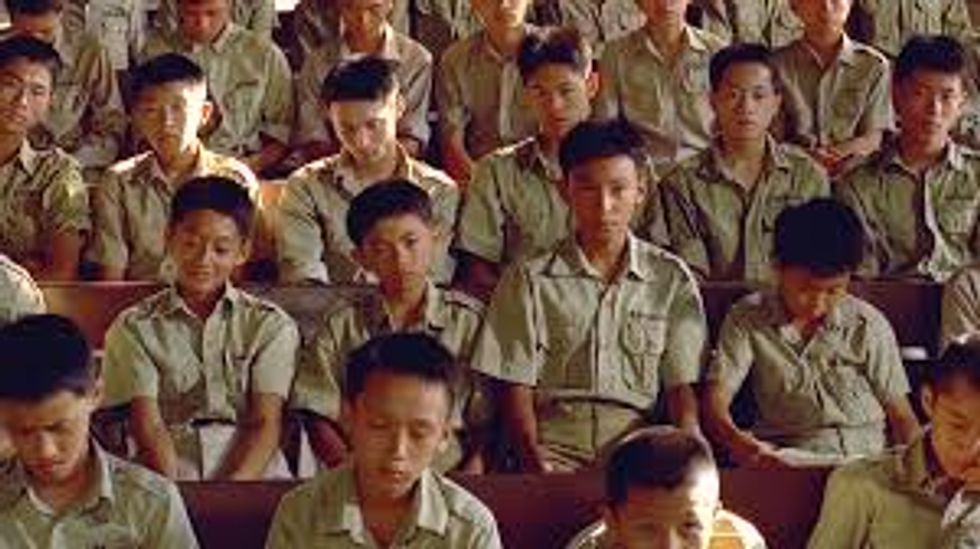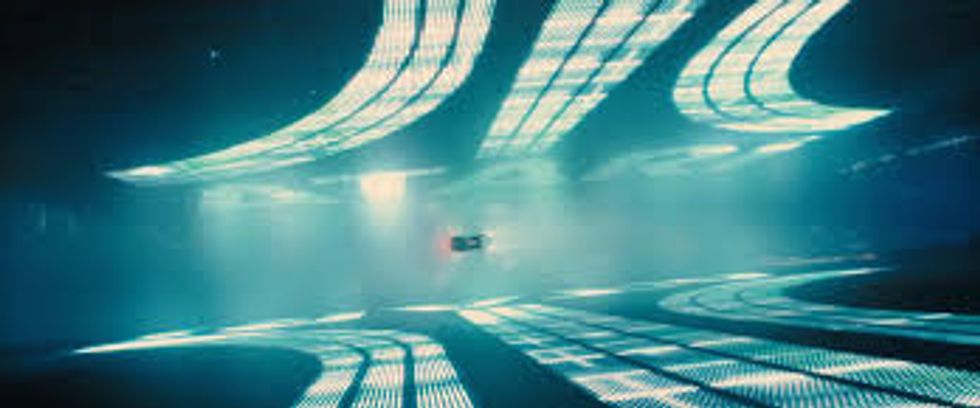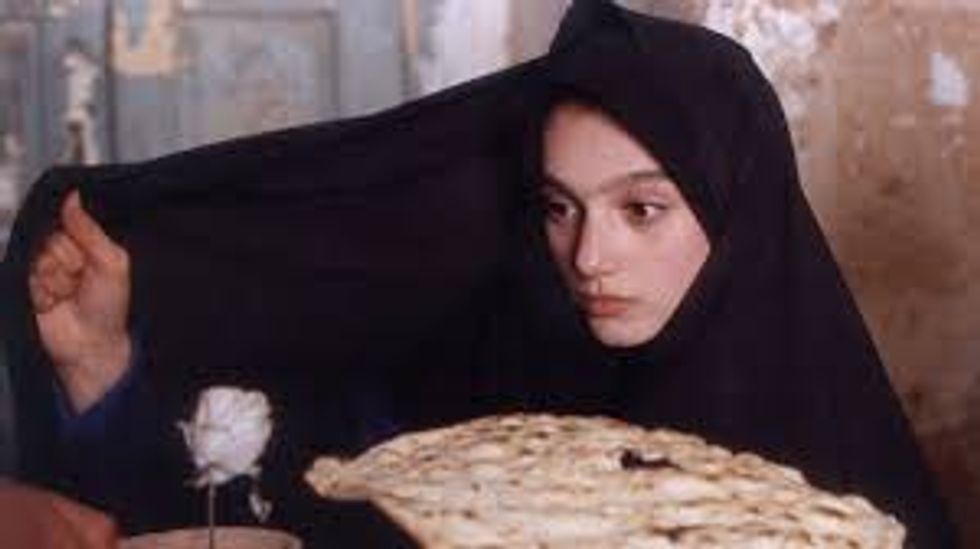Aha! You thought I had shrugged movie reviews to the side, haven't you, my dears? Not to fret! I'd only covered seventeen years worth of cinema, and would be remiss not to mention anymore. So with two installments for just that many years, what will I do for roughly a hundred years? Crunch 'em all into one article, of course!
First off - know this list was HARD to put together. How do you tell children you love them more than your other children? I don't know, cause I'm a swinging bachelor and I'm discussing movies, not children. Anyway, here are some honorable mentions:
Citizen Kane (hah), Brazil/The Fisher King, The Last Temptation of Christ, Singin' in the Rain, Jurassic Park, Boyz n the Hood, La Strada, The Wild Bunch, When Harry Met Sally, To Kill a Mockingbird, Vertigo
I realized many of these choices and the ones below are after the 60s. Yeah, not gonna lie, I kind of can't stand most old movies of the bygone classic Hollywood era (that might just be the most pretentious thing I've ever said). They're artificial products of a patriarchal, racist and sexist era, decorated in a self-congratulatory glamor - with true genius and innovation seeping through only a handful.
That's my spiel. Tune in next week for the ten worst films of the 20th century, alongside our favorite brain addled producer, Chad Long!
10. A Hard Day's Night (1964)
This should have been a bland corporate product, aged horribly as a teenybopper cash grab. Instead, we get a euphoric joyride, a whiz bang odyssey through one of history's most exciting times of music and entertainment, seen through the bemused, droll eyes of a legendary foursome. How? Could be the impeccable comedic rhythm director Richard Lester pumps into the proceedings. Coupled with the giant yet witty presence each Beatle emanates, there's no way this could have been anything less than electric. We don't gain any deep insight into what it means to be a Beatle, or any commentary on the music industry of the 60s. The film is confident enough to let its temporal atmosphere be a character of its own; we're not here for a character study, we're here to live and catch our breath amongst the arguable personifications of the early 1960s. That within itself is an experience capable of oddly being timeless, by virtue of the four's refusal to dip into caricature or whatever stereotype expected of them. They don't need to convince anyone, they're The Beatles, dammit! And that's good enough. Thank goodness we got this film in the limbo of the Beatles' success, the deep breath before the insanely massive plunge of their continuing worldwide domination. Pleasant as it is innovative, clever as it is fun, there's nothing quite like it.
9. Aguirre, the Wrath of God (1972)
We can claim we're our own biological world as much as we want, but the truth of it is, we're animals in nature who have simply evolved differently. Look at that mighty structure of wood and leaf, stretching into the sky and consuming that small abode; it doesn't need us to flourish, it will on its own, and in the end, we're just organisms who believe we're gods. A compelling tragedy inherent to us all, and Werner Herzog is well aware. I always wondered what triggered his shift to nature documentaries post 2000s, but looking back here, it's clear he always knew he was a cog in a natural world - he just needed time to understand his place. The making of the film exists as a parallel to the beginning of his understanding; diving into the jungle on one of his first breakthrough features, and barely, just barely surviving the wrath of the jungle furiously cocktailed with the flaw of the human being. Was this coincidence? Was it the craft reflecting the subconscious madness? With Herrzog, you can never be sure. Aguirre doesn't only provide a stunning deconstruction on the brave explorer archetype. Aguirre goes further than simple deconstruction - once we know the chips are down, that these aren't grand heroes but wonderfully flawed madmen, it lets any pretense of normal narrative loose. Suddenly, we're in a world that's not even real. Herzog brings us deeper into this narrative by allowing the Amazon jungle to reflect these doomed beings, and we're watching animals go wild as if a wild animal itself was filming the proceedings. Trees coil into Lovecraftian borders preventing us from escaping. Instincts are uncaged, untethered, and inescapable. No one is safe, no one is normal, and everyone is just a pawn in the demented empire of lead character Aguirre, the wrath of God himself. It becomes nothing more than the process of a food chain, but with that touch of human insanity. Bold. Beautiful. Batshit.
8. A Streetcar Named Desire (1951)
Ugh, don't you hate old melodramas? The one where there's that close up of two couples yelling robotically, to the tune of a swelling score? So like, all of them pretty much. Thank god for them, because they make the actual good ones like Streetcar even better. A pressure cooker ready to blow, a volatile pot full of explosive ingredients, and no promise of kindness or safety - what the best dramatic films are. Drama, at its core, pits giant against giant and lets the audience duck and swerve as blows are exchanged. But those giants need to be interesting. They need to carry weight behind their titanic movements, we need to know we have to run, otherwise we're just watching mindless choreography. Again, Streetcar knows and understands this with perfect clarity. Of course, it's Tennessee Williams' merciless material we have to thank, but the theater was much less bound than film; we got a hell of a roster of actors ready to elevate their craft on this. It's almost as if a crazy synergy enveloped all cast and crew on set, and they saw vision of a future where theatrical gestures were replaced with subtle facial and verbal tics; telegraphed conflict gives way to realistic twists and turns, with a rawness all too familiar; and grandiose speeches weren't just expositional declarations, but poetry. Vivian Leigh and Marlon Brando, tired of plastic Hollywood acting, let themselves go into their characters. Leigh is a broken waif barreling headfirst into delusion. Brando is a brute, the peak of masculine toxicity. Voila! Giants. An almost dreamlike Southern landscape - which could have been a lazily replicated theatre set - welcomes us to a place where demons roam wild, where there's ain't no rest for the good. And everyone, from set to stars, show no reluctance to put on a show without mercy. It's a hell of a piece, and one that's aged like a delicious bitter whiskey.
7. Duck Soup (1933)
Remember what I said about melodramas? Same goes for comedy! That's a little harsh though, seeing as comedy changes per generation. Well, good thing the Marx Brothers are fucking timelessly hilarious. They knew the ensemble of foils was key. Don't like machine gun fire snark from Groucho? Get some impeccable slapstick from Harpo. Not your cup of tea? Watch Chico engage in some communication breakdown with nearly everyone. Most importantly, they're anarchic. No, I'm not saying that in an edgy hipster way, though I'm sure the Bros had their fair share of governmental disdain. But you watch and you realize hardly any of the actual filming is planned. It's just these four on a set let loose upon the world, hurling their comedic gifts around in a whirlwind of destruction. It's just beautiful. Every brother at this point has mastered their shtick, and it's incapable of hitting a single false note. Duck Soup is the peak of those powers at play. No one is spared. Stakes are raised on an international battlefield, which only really makes it funnier. The jokes come so fast, that whatever your humor sensibilities be, at least one of them will stick. For a 1930s studio system effort, there's little to no trace of product here - the energy of the Bros is just that good. But you know, I have to give credit to a usually non-credited source on this film: director Sam Wood. No one remembers the directors of Marx Brothers movies, not anyone I know at least. Here, I can't disregard the way Wood conducts the beats and timing, full faith in his orchestra, simply doing what is needed and doing it perfectly. He helps what could have gotten out of control - entertainingly, but still a little too chaotic - become tuned into an orchestral barrage of nonstop laughs, more so than any other Marx Brothers director I've seen. Like all comedies, I won't do it any injustice by describing the multitude of iconic and majestically crafted gags on screen here. I'll say that it's one of the funniest times you'll have watching the movie, and I recommend that you do so right away.
6. The Sting (1973)
Call it investigative nature in a highly sociopolitical world, but I like to dissect films and peel back their layers, seeing if I can spot any feelings born of the period it was made; any existential or impressionist emotions, or any deconstructions and subversions hidden very well. But sometimes, a film is just a goddamn good piece of entertainment. The Sting is one of those parties you go to where you just have an amazing time, talk to and laugh with the most pleasant people, leave at the right time and suffer no hangover. THIS is how you do throwback. It's not deliriously in love with 30s culture or settings, no. Nor does it forget that it's still being made in the 1970s, when there was anything but whimsy in both art and the world. The Sting succeeds in the fact that it commands attention to its impeccably written and airtight plot, but then keeps you in place with killer charm - Robert Redford and Paul Newman together can do no wrong, and I'll always be heartbroken that they never and will never have a chance for a third project together - and humor both jolly and brimming with life. When Robert Redford runs with his accomplice, and that nostalgic piano kicks in, you've realized you're trapped by a show of pure delight. Every element of old and new film bound together. There could have been so many slips into caricature via its world of con men, yet the players have no intention of letting that happen. The soundtrack (one of my absolute favorites, GO LISTEN TO IT) rattles off the most pleasing Scott Joplin ragtime tunes, and you get the sense that they want to make sure you have as good a time as possible. Hell, plot wise, the enjoyment is watching every second of the titular scheme develop - you can feel the writers and director beckoning you to come watch the fun. Maybe there's no outright theme or impression pulled from the 1970s, but there was a desperate attempt to distract audiences away from that horrid social landscape. Thus was born a timeless instrument of the purest emotion a film can deliver: joy. Watch it now, and you'll see a rare work of complete cinematic distraction. Twists and turns are aplenty too, so don't think you're just getting a charming, devilishly fun and clever masterpiece. You're getting a charming, devilishly fun, and masterfully plotted masterpiece.
5. F For Fake (1973)
Yeah, 1973 was dank. So, in the honorable mentions, I put Citizen Kane, which is heralded as the greatest and most influential film of all time across the board; it's the first film of director Orson Welles' career, which ends at F For Fake. How about that for a bookend? Anyway. It's incredible, because the audacity and promise of Citizen Kane - which, if you look at Welles' career, seems to wane - comes to its bittersweet conclusion here, and is as potent as ever. The Welles of this "film essay" (as critics call it because it really hops lines between fiction and documentary with aplomb) has stepped out of the proscenium, ready to sit back and impart his knowledge of the illusion, the grand trick that's bolstered his presence and craft since his fateful prank broadcasting of 'War of the Worlds' back in 1938. We watch in equal measures awe and entertainment while this boisterous ham of a human being delves into a real-life chronicle of late 1970s forgery, stylistically weaving us in and out of fiction and reality. You can tell he's not so much interested in the actual story as he is endeared to the world of deception and lies, for the sake of art - what better note to go out on? He's no more tricks to play, the rascal rebel of the 40s has come to put the curtain down in spectacular fashion. He ruminates on the inherent end of human achievement in a near Shakespearean lament, though urges us to keep creating. He dips into a train station, majestically draped in a black traveling coat, to demonstrate some magic to a young boy, though he himself notes how he "started at the top, and has been working his way down ever since". What an unforgettable artist. What a brilliant illusionist. You don't make what's called the greatest film of all time without being in command of not only the medium's potential, but your own twisted mind.
4. Fantasia (1940)
I'm jealous that Walt came up with this concept all on his own. I mean, guy practically invented the deliberate music video! I don't like to bank on the novelty as the film's defining grab, but to know that Walt Disney himself - the creator of the world's most divisive creative empire - was truly at the forefront of pushing boundaries back in his day. Sometimes I wonder why certain artists are held in such regard. As soon as Toccata and Fugue kicks in to a vista of beating music notes across an oil painted landscape, I know why Disney was able to create his empire. It's not only an intoxicating audiovisual feast, it's an ode to risk taking. To shrug aside your brand and use your abilities to make magic, the magic of a wizard giving all he's got. Not one singular note is flat or missing. Not one frame is anything less than a gorgeous canvas, delicately woven by virtuosos with every detail. Even the title is a perfect encapsulation of how one feels watching this film. Fantasia! Sounds like a promise of something like you've never seen before. Every time I turn it on when I need artistic inspiration, it does feel new. It's primally expressive and stretching for awe, almost as if the song and frame are melded together through perfect synchronization and have gained sentient minds of their own. Walt owned his medium because he respected the hell out of it. He knew animations could capture a boundless, limitless imagination that studio sets rarely, if ever, could not at that time. I think there have been so few projects like Fantasia because it was the perfect conjunction of a medium reaching beyond what was expected of it, at a time when hardly anyone could. That's probably why it tanked at the box office. But that's all I can say. To talk of it as anything other than a experience would draw from its magic, and you ought to watch it with all of that magic intact.
Ah. To have seen this in theaters. Wouldn't that be something truly terrific?
3. A Brighter Summer Day (1991)
The best gangster protagonists are the younger ones. They're roped into a world they never deserved to be in, as puppets of a cynical generation who refuses to end their world and cycle and its toxic influence. They're really the only type of protagonists you can truly have sympathy for in the genre. The tragedy's also made tenfold worse. Because inevitably, two things will happen: they'll mature into the adult gangster archetype we know, and follow the course of death, success, or isolation; or their life will end now, just a cog who never had a say. And they're never going to achieve any dreams of success or family. I mean, that's just potent storytelling territory, and it makes you wonder why this is one of the few films that dives into it. I won't spoil the specifics, just because this film explores that spectrum in so many glorious ways. We watch, we hope it won't end the way we think it will, we teeter on that thoroughly intense line for a while, and then it all ends. Please, see for yourself. I've been on few cinematic journeys so grueling yet so rich. And for quite some time! A four hour runtime could have been fatally indulgent. How director Edward Yang made it fly by is a filmmaking miracle. You ever watch an overlong film and think, geez, it oughta be a television show? I flirted with that thought several times throughout A Brighter Summer Day, but never ever agreed it would work. Because just when one character's path ended, another began. Subversions are set up over a while, blowing up beautifully just as other plot points are picked up. Yang contains this all in one Taiwanese neighborhood, deftly avoiding any aimlessness. However, we have the backdrop of isolationist Taiwan, which is attempting to avoid any Communist influence. We're all just trying to find our own identity. And some of us are never gonna be free to do so. That's the ultimate tragedy, not the allure of crime. But the fact that it's the only lifeline. So buckle in, and enjoy diving further than any gangster movie's dared to do.
Also, points for what's probably the most heartbreaking plot point concerning Elvis in film history.
2. Blade Runner (1982)
Fun fact: I saw this little ditty most recently of all the pops on this list. And I had good expectations for it, I thought, you know, it'd be the kind of films younger filmmakers fall in love with; solid script, beautiful lighting, great set pieces. Yeah, I'm in. But I never expected a story that so expertly told through visuals and subtle characterization alone. Was it because this film's seeped into pop cultural osmosis via its practically creating the cyberpunk genre? I was foolish to write it off as it's sole achievement, and not even think that its beloved status came from anything else. Smartly, Ridley Scott tells you all you need to know in a neat little title card at the film's beginning - from then on, the world will do the talking. High powered lights push through rain and smog, lighting buildings and people alike: all just machinations, though there's no reason that existence can be without beauty. Everything reaches out to each other because we all want to serve one purpose, command our own story. Knowing that and respecting that in all forms of life - artificial or real - is a key lesson to know, and a poignant one to behold at that. When human cop Rick Deckard (Harrison Ford), coerced into hunting down rogue replicant humans, comes face to face with his final quarry, Roy Batty - an angel and devil imbued with heavenly grace and fright by a perfect Rutger Hauer - it isn't a battle of the physical soul. It's a much larger battle than that, a crux of humankind choosing between apathy or empathy. In the noir-ish, filthy landscape of Los Angeles 2019, we're broken, but not just yet. Vangelis' ethereal score rings high above, distant and cerebral, a graceful reminder of the dizzying heights we could reach together if we just chose to do so with an acknowledgement to every soul from every source. The Frankenstein Monster-like Roy is ruthless in his pursuit of prolonging his fake life, but not out of cruelty or malice - just the same fear that grips us all. The fear we'll die nothing more than a statistic, a dot in an endless landscape of moving dots. When Ford bears witness to Roy's final moments, it's the climax of that plea's striving to be heard. The music swells, the lights subside to give way to normal closeups of both men, and we know, just then and there, that hope might exist. Ridley Scott knew, more than anything, that the sci-fi genre was the most potent way to explore humanity's highs and lows in dazzling ways. He came to work on that here.
Denis Villeneuve, I know you got this, man. Blade Runner 2049 is gonna be dope!...hopefully.
1. A Moment of Innocence (1996)
What is it like to dramatize someone's life? To cast them, to recreate a life event using other people? How do the real people feel about it, and more so, what do they want out of it? Iranian director Moshen Makhmalbaf wanted to know. Thank God he did. Thank God the foreign language film club I served as treasurer for decided to showcase this flick. I would have missed out on a vital piece of work if they didn't. Yeah, just like most of you, I had no idea this existed. But if you have seventy minutes to kill, go find it.
The film raises those aforementioned questions organically and humorously - which I did not expect at all - and answers them without ever missing a beat. The seventy minute timespan is perfect, befitting the 'behind the scenes' nature of the film. Shorter lengths often do give way to a more entrancing journey through a story. It challenges us to think about committing reality to fiction: a hefty challenge, but done here in a simple and natural way. They will always clash with each other, just because that's the human component of storytelling. More often than not, that knack for embellishment might enlighten us or hell, just crack us up. And it'll be emotional, no doubt.. After an hour of laughing at the machinations of Makhmalbaf and his actors settling into their roles, watching the policeman realize the true pain and horror of the event (his stabbing by Makhmalbaf, which the director wishes to make a film of as a way of making amends to the police officer) and storm off set is a gut punch. The actor portraying the younger him follows him, trying to get his friend to come back, and it's all at once funny, heartwarming, and melancholy. The pinpoint precision it nails these emotions with is even better. Which really is the reason I hold this film in such high regard: its metaphysical grasp on what film, both inside and out, can be. A friend. A redemption. A memory capsule. A pathway to ridiculousness and vanity. So many things. We may never find a way to utilize all of them. Mohsen tries. If Disney took the advent of animation and tried to reconstruct it with heavenly armor, Mohsen took a hundred years' worth of development and tried to strip it bare. It could've probably only been done here in the 1990s, a minimalist decade unto itself; a time where one could stop and think not just about the times, but all that's happened. A Moment of Innocence, more than a story, is glorious retrospection of what it is.
Hope, pain, and compassion - all vital ingredients to the film's core, and delivered in such a unique premise. Mohsen knows EXACTLY what he wants, and wastes nor overuses any time doing so. His skill in moving story forward and hitting character beats is blinding, and yet the film still wonderfully takes its time, letting shots linger to hear offscreen dialogue. I mean, it's just a film, at the end of the day. Yet it stands to reason that the most important medium development of the modern era has assumed its own temporality. For a quietly modest film, it's a commandingly huge step forward.


